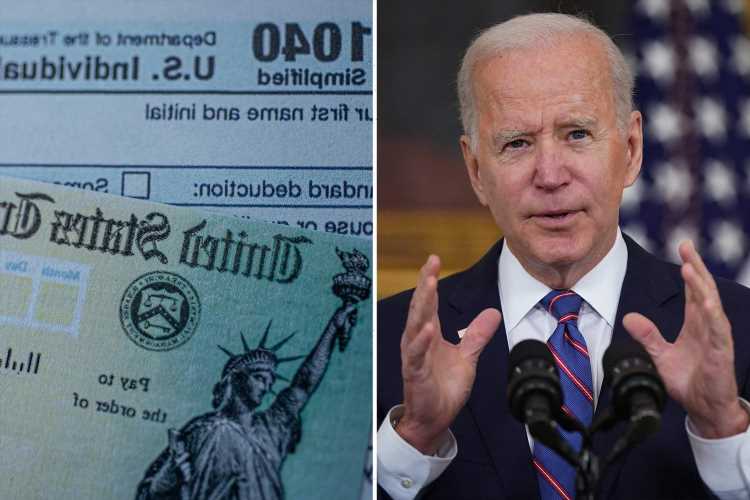MORE 'plus up' payments will be going out to Americans on a weekly basis as part of stimulus checks sent out to the US Government.
But what are 'plus up' payments, do I qualify and how will they arrive? Here is everything we know so far.
What are 'plus up' payments?
Since the release of President Joe Biden’s $1.9 trillion American Rescue Plan, more than 1 million ‘plus-up’ payments have been made to Americans in a bid to boost the economy and consumer habits.
They form part of stimulus checks, which are are sent out by the US Government to taxpayers during times of economic hardship as a way to boost spending power.
Between March 2020 and March 2021, the U.S. Government sent three rounds of stimulus payments to provide relief for economic hardships caused by COVID-19.
These rounds include 'plus up' payments, and will enable many of those affected by the pandemic to claim extra cash.
They are a new element to stimulus checks because they are being delivered in the middle of a tax season.
Who qualifies for a 'plus up' payments?
All Americans who earned less in 2020 then they did in the previous year, will qualify for 'plus up' payments.
The current stimulus checks amount to $1,400 for a single person or $2,800 for a married couple filing jointly, plus an additional $1,400 for each dependent child.
Individuals earning up to $75,000 get the full payments, as will married couples with incomes up to $150,000.
In a statement, the IRS also confirmed that: "These ‘plus-up’ payments could include a situation where a person’s income dropped in 2020 compared to 2019, or if a person had a new child that is dependent on their 2020 tax return, and other situations."
How will 'plus up' payments arrive?
'Plus up' checks began processing on Friday, March 26 and the official payment date was March 31.
According to the IRS, you will likely receive a 'plus up' payment on a weekly basis as the agency continues to process tax returns from 2020 and 2019.
If you have received your stimulus payment via a direct deposit, then it’s likely that you’ll also receive any ‘plus-up’ payments in the same manner.
Dina Pryon, global leader of EY TaxChat, said: “Once you file your 2020 return and you qualify for the $1,400 for you, your family and dependents, those payments will either be deposited directly in your bank account, or you will get an additional check.”
What to do if I don’t get a 'plus up' payment?
Many Americans have been continuing to wait for their 'plus up' payments with a third round of checks now being sent out to households.
Tax experts suggest that if you didn’t qualify for the latest round based on 2019, but you do qualify based on 2020, then the next best step is to file your 2020 taxes as soon as possible.
This is because the IRS has until the ends or the year to issue the stimulus payments for 2021 and will be reviewing returns for 2020.
Those who are eligible for further payment from the third round include recipients of social security such as veterans, retirees, survivors or those with disability beneficiaries.
Source: Read Full Article




